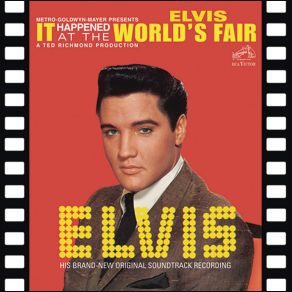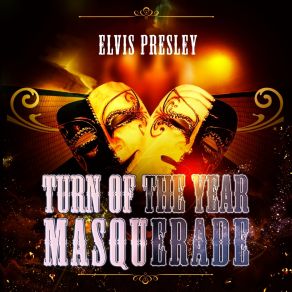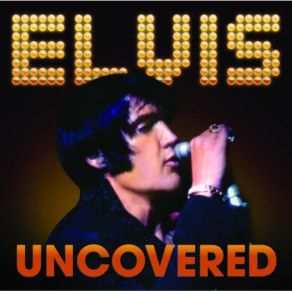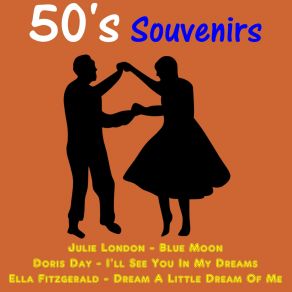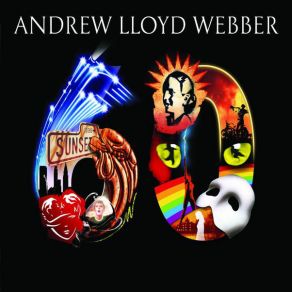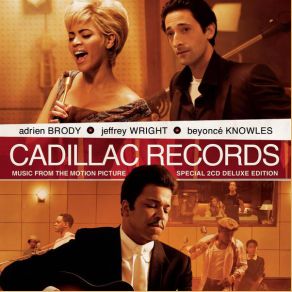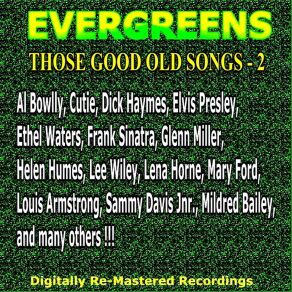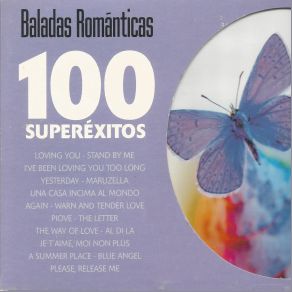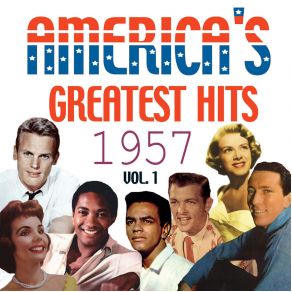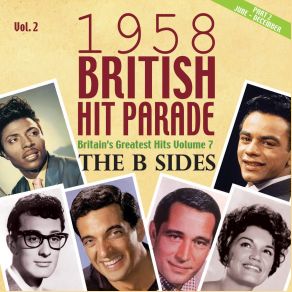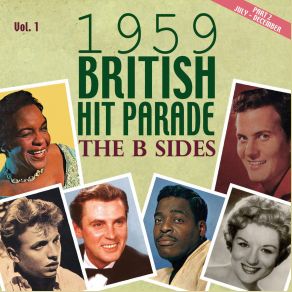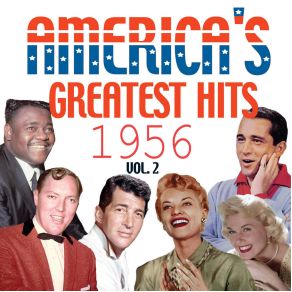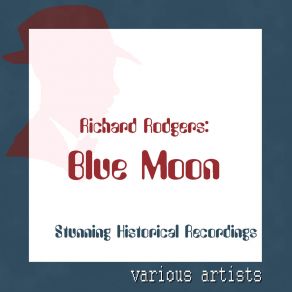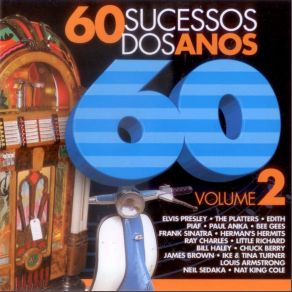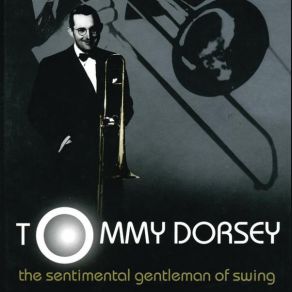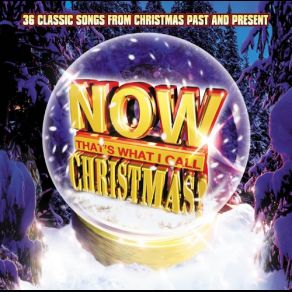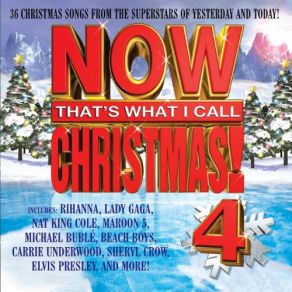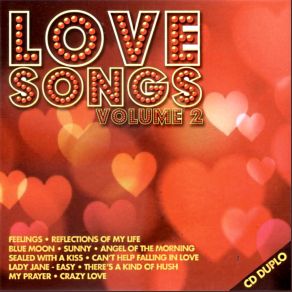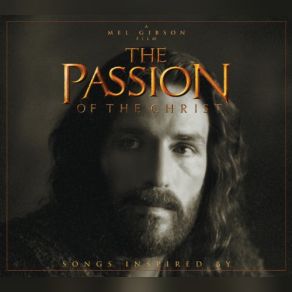Elvis Presley
Wikimp3 information about the music of Elvis Presley. On our website we have 70 albums and 70 collections of artist Elvis Presley. You can find useful information and download songs of this artist. We also know that Elvis Presley represents Rock genres.
Biography
[Edit]Elvis Presley may be the single most important figure in American 20th century popular music. Not necessarily the best, and certainly not the most consistent. But no one could argue with the fact that he was the musician most responsible for popularizing rock & roll on an international level. Viewed in cold sales figures, his impact was phenomenal. Dozens upon dozens of international smashes from the mid-'50s to the mid-'70s, as well as the steady sales of his catalog and reissues since his death in 1977, may make him the single highest-selling performer in history.
More important from a music lover's perspective, however, are his remarkable artistic achievements. Presley was not the very first white man to sing rhythm & blues; Bill Haley predated him in that regard, and there may have been others as well. Elvis was certainly the first, however, to assertively fuse country and blues music into the style known as rockabilly. While rockabilly arrangements were the foundations of his first (and possibly best) recordings, Presley could not have become a mainstream superstar without a much more varied palette that also incorporated pop, gospel, and even some bits of bluegrass and operatic schmaltz here and there. His '50s recordings established the basic language of rock & roll; his explosive and sexual stage presence set standards for the music's visual image; his vocals were incredibly powerful and versatile.
Unfortunately, to much of the public, Elvis is more icon than artist. Innumerable bad Hollywood movies, increasingly caricatured records and mannerisms, and a personal life that became steadily more sheltered from real-world concerns (and steadily more bizarre) gave his story a somewhat mythic status. By the time of his death, he'd become more a symbol of gross Americana than of cultural innovation. The continued speculation about his incredible career has sustained interest in his life, and supported a large tourist/entertainment industry that may last indefinitely, even if the fascination is fueled more by his celebrity than his music.
Born to a poor Mississippi family in the heart of Depression, Elvis had moved to Memphis by his teens, where he absorbed the vibrant melting pot of Southern popular music in the form of blues, country, bluegrass, and gospel. After graduating from high school, he became a truck driver, rarely if ever singing in public. Some 1953 and 1954 demos, recorded at the emerging Sun label in Memphis primarily for Elvis' own pleasure, helped stir interest on the part of Sun owner Sam Phillips. In mid-1954, Phillips, looking for a white singer with a black feel, teamed Presley with guitarist Scotty Moore and bassist Bill Black. Almost by accident, apparently, the trio hit upon a version of an Arthur Crudup blues tune "That's All Right Mama," which became Elvis' first single.
Elvis' five Sun singles pioneered the blend of R&B and C&W that would characterize rockabilly music. For quite a few scholars, they remain not only Elvis' best singles, but the best rock & roll ever recorded. Claiming that Elvis made blues acceptable for the white market is not the whole picture; the singles usually teamed blues covers with country and pop ones, all made into rock & roll (at this point a term that barely existed) with the pulsing beat, slap-back echo, and Elvis' soaring, frenetic vocals. "That's All Right Mama," "Blue Moon of Kentucky," "Good Rockin' Tonight," "Baby Let's Play House," and "Mystery Train" remain core early rock classics.
The singles sold well in the Memphis area immediately, and by 1955 were starting to sell well to country audiences throughout the South. Presley, Moore, and Black hit the road with a stage show that grew ever wilder and more provocative, Elvis' swiveling hips causing enormous controversy. The move to all-out rock was hastened by the addition of drums. The last Sun single, "I Forgot to Remember to Forget"/"Mystery Train," hit number one on the national country charts in late 1955. Presley was obviously a performer with superstar potential, attracting the interest of bigger labels and Colonel Tom Parker, who became Elvis' manager. In need of capital to expand the Sun label, Sam Phillips sold Presley's contract to RCA in late 1955 for 35,000 dollars; a bargain, when viewed in hindsight, but an astronomical sum at the time.
This is the point where musical historians start to diverge in opinion. For many, the whole of his subsequent work for RCA — encompassing over 20 years — was a steady letdown, never recapturing the pure, primal energy that was harnessed so effectively on the handful of Sun singles. Elvis, however, was not a purist. What he wanted, more than anything, was to be successful. To do that, his material needed more of a pop feel; in any case, he'd never exactly been one to disparage the mainstream, naming Dean Martin as one of his chief heroes from the get-go. At RCA, his rockabilly was leavened with enough pop flavor to make all of the charts, not just the country ones.
At the beginning, at least, the results were hardly any tamer than the Sun sessions. "Heartbreak Hotel," his first single, rose to number one and, aided by some national television appearances, helped make Elvis an instant superstar. "I Want You, I Need You, I Love You" was a number one follow-up; the double-sided monster "Hound Dog"/"Don't Be Cruel" was one of the biggest-selling singles the industry had ever experienced up to that point. His first two LPs, Elvis Presley and Elvis, were also chart-toppers, not just in the U.S., but throughout the world. The 1956 RCA recordings, while a bit more sophisticated in production and a bit less rootsy in orientation than his previous work, were still often magnificent, rating among the best and most influential recordings of early rock & roll.
Elvis' (and Colonel Parker's) aspirations were too big to be limited to records and live appearances. By late 1956, his first Hollywood movie, Love Me Tender, had been released; other screen vehicles would follow in the next few years, Jailhouse Rock being the best. The hits continued unabated, several of them ("Jailhouse Rock," "All Shook Up," "Too Much") excellent, and often benefiting from the efforts of top early rock songwriter Otis Blackwell, as well as the emerging team of Jerry Leiber and Mike Stoller. The Jordanaires added both pop and gospel elements with their smooth backup vocals.
Yet worrisome signs were creeping in. The Dean Martin influence began rearing his head in smoky, sentimental ballads such as "Loving You"; the vocal swoops became more exaggerated and stereotypical, although the overall quality of his output remained high. And although Moore and Black continued to back Elvis on his early RCA recordings, within a few years the musicians had gone their own ways.
Presley's recording and movie careers were interrupted by his induction into the Army in early 1958. There was enough material in the can to flood the charts throughout his two-year absence (during which he largely served in Germany). When he re-entered civilian life in 1960, his popularity, remarkably, was at just as high a level as when he left.
One couldn't, unfortunately, say the same for the quality of his music, which was not just becoming more sedate, but was starting to either repeat itself, or opt for operatic ballads that didn't have a whole lot to do with rock. Elvis' rebellious, wild image had been tamed to a large degree as well, as he and Parker began designing a career built around Hollywood films. Shortly after leaving the Army, in fact, Presley gave up live performing altogether for nearly a decade to concentrate on movie-making. The films, in turn, would serve as vehicles to both promote his records and to generate maximum revenue with minimal effort. For the rest of the '60s, Presley ground out two or three movies a year that, while mostly profitable, had little going for them in the way of story, acting, or social value.
While there were some quality efforts on Presley's early-'60s albums, his discography was soon dominated by forgettable soundtracks, mostly featuring material that was dispensable or downright ridiculous. He became largely disinterested in devoting much time to his craft in the studio. The soundtrack LPs themselves were sometimes filled out with outtakes that had been in the can for years (and these, sadly, were often the highlights of the albums). There were some good singles in the early '60s, like "Return to Sender"; once in a while there was even a flash of superb, tough rock, like "Little Sister" or "(Marie's the Name) His Latest Flame." But by 1963 or so there was little to get excited about, although he continued to sell in large quantities.
The era roughly spanning 1962-1967 has generated a school of Elvis apologists, eager to wrestle any kernel of quality that emerged from his recordings during this period. They also point out that Presley was assigned poor material, and assert that Colonel Parker was largely responsible for Presley's emasculation. True to a point, but on the other hand it could be claimed, with some validity, that Presley himself was doing little to rouse himself from his artistic stupor, letting Parker destroy his artistic credibility without much apparent protest, and holing up in his large mansion with a retinue of yes-men who protected their benefactor from much day-to-day contact with a fast-changing world.
The Beatles, all big Elvis fans, displaced Presley as the biggest rock act in the world in 1964. What's more, they did so by writing their own material and playing their own instruments; something Elvis had never been capable of, or particularly aspired to. They, and the British and American groups the Beatles influenced, were not shy about expressing their opinions, experimenting musically, and taking the reins of their artistic direction into their own hands. The net effect was to make Elvis Presley, still churning out movies in Hollywood as psychedelia and soul music became the rage, seem irrelevant, even as he managed to squeeze out an obscure Dylan cover ("Tomorrow Is a Long Time") on a 1966 soundtrack album.
By 1967 and 1968, there were slight stirrings of an artistic reawakening by Elvis. Singles like "Guitar Man," "Big Boss Man," and "U.S. Male," though hardly classics, were at least genuine rock & roll that sounded better than much of what he'd been turning out for years. A 1968 television special gave Presley the opportunity he needed to reinvent himself as an all-out leather-coated rocker, still capable of magnetizing an audience, and eager to revisit his blues and country roots.
The 1968 album Elvis in Memphis was the first LP in nearly a decade in which Presley seemed cognizant of current trends, as he updated his sounds with contemporary compositions and touches of soul to create some reasonably gutsy late-'60s pop/rock. This material, and 1969 hits like "Suspicious Minds" and "In the Ghetto," returned him to the top of the charts. Arguably, it's been overrated by critics, who were so glad to have him singing rock again that they weren't about to carp about the slickness of some of the production, or the mediocrity of some of the songwriting.
But Elvis' voice did sound good, and he returned to live performing in 1969, breaking in with weeks of shows in Las Vegas. This was followed by national tours that proved him still capable of being an excellent live entertainer, even if the exercises often reeked of show-biz extravaganza. (Elvis never did play outside of North America and Hawaii, possibly because Colonel Parker, it was later revealed, was an illegal alien who could have faced serious problems if he traveled abroad.) Hollywood was history, but studio and live albums were generated at a rapid pace, usually selling reasonably well, although Presley never had a Top Ten hit after 1972's "Burning Love."
Presley's '70s recordings, like most of his '60s work, are the focus of divergent critical opinion. Some declare them to be, when Elvis was on, the equal of anything he did, especially in terms of artistic diversity. It's true that the material was pretty eclectic, running from country to blues to all-out rock to gospel (Presley periodically recorded gospel-only releases, going all the way back to 1957). At the same time, his vocal mannerisms were often stilted, and the material — though not nearly as awful as that '60s soundtrack filler — sometimes substandard. Those who are not serious Elvis fans will usually find this late-period material to hold only a fraction of the interest of his '50s classics.
Elvis' final years have been the subject of a cottage industry of celebrity bios, tell-alls, and gossip screeds from those who knew him well, or (more likely) purported to know him well. Those activities are really beyond the scope of a mini-bio such as this, but it's enough to note that his behavior was becoming increasingly unstable. His weight fluctuated wildly; his marriage broke up; he became dependent upon a variety of prescription drugs. Worst of all, he became isolated from the outside world except for professional purposes (he continued to tour until the end), rarely venturing outside of his Graceland mansion in Memphis. Colonel Parker's financial decisions on behalf of his client have also come in for much criticism.
On August 16, 1977, Presley was found dead in Graceland. The cause of death remains a subject of widespread speculation, although it seems likely that drugs played a part. An immediate cult (if cult is the way to describe millions of people) sprang up around his legacy, kept alive by the hundreds of thousands of visitors who make the pilgrimage to Graceland annually. Elvis memorabilia, much of it kitsch, is another industry in his own right. Dozens if not hundreds make a comfortable living by impersonating the King in live performance. And then there are all those Elvis sightings, reported in tabloids on a seemingly weekly basis.
Although Presley had recorded a mammoth quantity of both released and unreleased material for RCA, the label didn't show much interest in repackaging it with the respect due such a pioneer. Haphazard collections of outtakes and live performances were far rarer than budget reissues and countless repackagings of the big hits. In the CD age, RCA finally began to treat the catalog with some of the reverence it deserved, at long last assembling a box set containing nearly all of the '50s recordings. Similar, although less exciting, box sets were documenting the '60s, the '70s, and his soundtrack recordings. And exploitative reissues of Elvis material continue to appear constantly, often baited with one or two rare outtakes or alternates to entice the completists (of which there are many). In death as in life, Presley continues to be one of RCA's most consistent earners. Fortunately, with a little discretion, a good Elvis library can be built with little duplication, sticking largely to the most highly recommended selections.
Title: It Happened At the World's Fair (Original Soundtrack)
Artist: Elvis Presley
Genre: Rock, Rock & Roll, Theatre/Soundtrack
Title: The Original Elvis Presley Collection (Part 1) (CD1)
Artist: Elvis Presley
Genre: Rock, World Music, Pop
Title: The Forgotten (LIMITED EDITION)
Artist: Elvis Presley
Genre: Rock, Punk Rock, Rockabilly, Pop
Title: The Complete '50s Movie Masters And Session Recordings (CD1)
Artist: Elvis Presley
Genre: Rock
Title: The Complete '68 Comeback Special- The 40th Anniversary Edition
Artist: Elvis Presley
Genre: Pop
Title: The Original Elvis Presley Collection (Part 1) (CD25)
Artist: Elvis Presley
Genre: Rock, World Music, Pop
Title: In Person At The International Hotel, Las Vegas (CD1 - Special Edition)
Artist: Elvis Presley
Genre: Rock & Roll
Collections
Title: 15 Great Classics
Genre: Pop
Title: The Ultimate Wedding Reception Playlist
Genre: Pop
Title: The Best Wedding Reception Music, Vol. 1
Genre: Pop
Title: 21 Classic Christmas Favorites, Vol. 2
Genre:
Title: 21 Christmas Hits
Genre:
Title: Clasicos del Cine
Genre: Pop
Title: 21 Classic #1 Hits
Genre: Pop
Title: Nipper's Greatest Hits 60's, Vol. 2
Genre: Pop
Title: My Pop Christmas
Genre:
Title: Practical Magic (Music from the Motion Picture)
Genre: Pop, Theatre/Soundtrack
Title: Kick-Ass (Music from the Motion Picture)
Genre: Rock, Theatre/Soundtrack
Title: The Essential NOW That's What I Call Christmas
Genre:
Title: 50's Souvenirs
Genre: Jazz
Title: Andrew Lloyd Webber 60
Genre: Theatre/Soundtrack
Title: Noche de Baladas (Nostalgicas)
Genre: Pop
Title: 21 Classic Christmas Favorites
Genre: Traditional Pop Music
Title: Forrest Gump (The Soundtrack)
Genre: Theatre/Soundtrack
Title: Xmas Inspiration: Christmas Time in Family
Genre:
Title: Xmas Inspiration: The Christmas Hits for You
Genre:
Title: Xmas Inspiration: Christmas Festival
Genre:
Title: Christmas Time
Genre: Rock, Punk Rock, Traditional Pop Music, Easy Listening
Title: The Best Christmas Album
Genre: Traditional Pop Music
Title: The Christmas Hits
Genre: Traditional Pop Music
Title: Evergreens - Those Good Old Songs - 2
Genre: Pop
Title: America's Greatest Hits 1957, Vol. 1
Genre: Pop
Title: The Greatest No. 1 Hits of the 50s
Genre: Pop
Title: Top Rock Collection, Vol. 3
Genre: Rock
Title: Worlds Greatest Christmas Hits
Genre:
Title: Jazz and Lounge
Genre: Jazz
Title: The 1958 British Hit Parade: The B Sides, Pt. 2, Vol. 1
Genre: Pop
Title: Triple Threat (Music & Film Stars)
Genre: Theatre/Soundtrack
Title: America's Greatest Hits 1957, Vol. 2
Genre: Pop
Title: Hits of the 50's Volume 3
Title: Nights of Rock Around the Clock
Genre: Rock
Title: The 1958 British Hit Parade: The B Sides, Pt. 2, Vol. 2
Genre: Pop
Title: The 1959 British Hit Parade the B Sides, Pt. 2, Vol. 1
Genre: Pop
Title: Rock'n'Roll Drive In
Title: 50 Christmas Hits: The Very Best Of Xmas Classics
Genre: Pop
Title: Top Rock Collection, Vol. 5
Genre: Rock
Title: The 1960 British Hit Parade: The B Sides, Pt 2, Vol. 2
Genre: Pop
Title: America's Greatest Hits 1956, Vol. 1
Genre: Pop
Title: Britain's Greatest Hits 1960
Genre: Pop
Title: America's Greatest Hits 1956, Vol. 2
Genre: Pop
Title: Remember When - 25 Memorable Hits
Genre: Pop
Title: Holiday Hits
Genre: Traditional Pop Music
Title: Now That's What I Call Christmas!
Genre: Pop, Traditional Pop Music
Title: The 1958 British Hit Parade: The B Sides, Pt. 1, Vol. 2
Genre: Pop
Title: C-H-R-I-S-T-M-A-S
Genre: Traditional Pop Music
Title: Classic Songs of Love
Genre: Pop
Title: Top Rock Collection, Vol. 4
Genre: Rock
Title: Top Rock Collection, Vol. 1
Genre: Rock
Title: Baby I'm a Want You & More Loving Memories
Genre: Pop
Title: Around The World In 80 Songs
Genre: Pop
Title: Old Time Rock and Roll - 28 Orginal Artists
Genre: Rock
Title: Canzoni del 1958
Genre: Pop
Title: Fiesta Y Reventón / Fiesta Y Reventon
Genre: Dancefloor, Dance Pop
Title: 21 American Icons
Genre: Pop
Title: Top Rock Collection, Vol. 2
Genre: Rock
Title: The 1960 British Hit Parade: The B Sides, Pt. 3, Vol. 2
Genre: Pop
Featuring albums
Title: Pleasantville (Music from the Motion Picture)
Artist: Pleasantville & Various Artists
Genre: Theatre/Soundtrack
Title: Megamind (Music from the Motion Picture)
Artist: Hans Zimmer, Lorne Balfe
Genre: Theatre/Soundtrack
Title: The Future Is Unwritten (Music from the Film)
Artist: Joe Strummer
Genre: Rock, Rock & Roll, Punk, Reggae, Roots Reggae, Dub, Alternative, Songwriter/Lyricist, Theatre/Soundtrack
Title: Best of Rock 'n' Roll & Jukebox Music: 100 Greatest Hits from the 50s & 60s
Artist: Various Artists
Genre: Rock
Title: The Essential NOW That's What I Call Christmas
Artist: Various Artists
Genre: Traditional Pop Music
Title: The Classic Christmas Album
Artist: Martina McBride
Genre: Rock, Country, Traditional Pop Music
Title: The Future Is Unwritten
Artist: The Future Is Unwritten (Motion Picture Soundtrack)
Genre: Rock
Title: Music From The Motion Picture Practical Magic
Artist: Music From The Motion Picture Practical Magic
Genre: Pop
Title: Big Fish - Music from the Motion Picture
Artist: Original Motion Picture Soundtrack
Genre: Classical
Title: Music From The Motion Picture Ocean's Eleven
Artist: Ocean's 11 Soundtrack
Genre: Theatre/Soundtrack
Title: Pleasantville -Music From The Motion Picture
Artist: Original Motion Picture Soundtrack
Genre: Pop
Title: Las Vegas: Original Television Soundtrack
Artist: Various
Genre: Electronica, Hip Hop/R&B, Rock, Dancefloor, Pop, Dance Pop, Theatre/Soundtrack
Title: Songs Inspired By The Passion Of The Christ (Soundtrack)
Artist: Various Artists
Genre: Theatre/Soundtrack
Title: Les Grandes voix chantent Noël / Les Grandes voix chantent Noel
Artist: Various Artists
Genre: Pop
Title: My Fellow Americans (Original Motion Picture Soundtrack)
Artist: Various Artists
Genre: Theatre/Soundtrack

